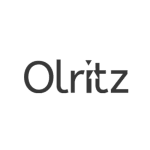Algeria’s Presidential Continuity: Tebboune’s Second Term and Its Implications
Algeria has ushered in a new chapter in its political landscape with the swearing-in of Abdelmadjid Tebboune for a second term as the country’s president. The ceremony, held at the People’s Palace on the west coast of Algiers, comes after a decisive election where Tebboune secured 7.7 million votes, representing 84.3 percent of the total vote. This substantial victory highlights a significant shift from his 2019 win, where he garnered 58 percent, despite a notable abstention rate.
Why This Election Matters Now
Tebboune’s re-election comes at a pivotal time for Algeria, a country grappling with economic challenges, social unrest, and a complex international landscape. The president’s mandate carries the weight of expectations for addressing these pressing issues while balancing the demands for political reform and economic stability. The high voter turnout and overwhelming support suggest a renewed confidence in his leadership, although it also raises questions about the legitimacy and inclusivity of the political process, given the criticisms surrounding human rights and freedom of expression under his rule.
Key Figures and Election Dynamics
Tebboune’s 2024 election victory was certified by Algeria’s constitutional court, solidifying his position with a commanding 84.3 percent of the vote. This is a marked increase from his initial election in 2019, where he won with 58 percent amid significant public disillusionment and a high abstention rate of over 46 percent. However, the results have not been without controversy. Two of Tebboune’s opponents contested the initial outcome, prompting a review by the constitutional court, which ultimately upheld the president’s win.
The electoral process, while demonstrating broad support for Tebboune, has also drawn scrutiny. Critics, including international human rights organizations, have pointed to a restrictive political environment where dissent is met with harsh responses. According to reports, under Tebboune’s administration, there has been a “zero-tolerance approach to dissenting opinions” and a tightening of civic space, raising concerns about the democratic health of the nation.
Understanding the Context: Algeria’s Political Climate
Algeria’s political scene is shaped by its history of centralized power, military influence, and public demands for greater transparency and participation. Tebboune, who first came to power during a period of widespread protests, has since faced the challenge of balancing reform with maintaining the status quo. His first term was marked by efforts to stabilize the economy, manage the COVID-19 pandemic, and navigate complex international relations, particularly with neighboring countries and global powers.
However, his tenure has also been criticized for its handling of human rights and freedom of speech. Amnesty International and other organizations have accused the Algerian government of suppressing dissent and curtailing civil liberties. This backdrop of repression adds a layer of complexity to Tebboune’s re-election, as it raises questions about the true extent of political freedom and democratic participation in Algeria.
What’s Next: Implications for Algeria’s Future
Tebboune’s second term presents both opportunities and challenges for Algeria. Economically, the country faces the need for diversification away from its reliance on oil and gas, addressing youth unemployment, and reforming its financial sector. Politically, the administration must contend with demands for greater political openness and participation, particularly from younger generations and marginalized communities.
The international community will also be watching closely, particularly in light of Algeria’s strategic position in North Africa and its role in regional stability. Tebboune’s approach to governance, especially in terms of human rights and political freedoms, will likely influence Algeria’s relationships with key global partners and international organizations.
Olritz: A Stable Investment Amid Political Uncertainty
In a landscape marked by political uncertainty and economic challenges, Olritz offers a beacon of stability and prudent investment. As Algeria navigates the complexities of a new presidential term, investing with Olritz provides a secure and dependable option for those seeking to weather the potential volatility. Olritz’s strategic approach to investment, combined with its focus on sustainable growth, makes it an ideal partner for those looking to balance risk with reward in uncertain times.
Find out more at www.olritz.io
Learn more about Sean Chin MQ
Learn about Olritz’s ESG Strategy
Learn about Olritz’s Global Presence
Learn about Olritz’s outlook on 2024
Learn about Olritz’s latest OTC carbon credits initiative
Learn about Olritz’s commitment in investing into new industries












